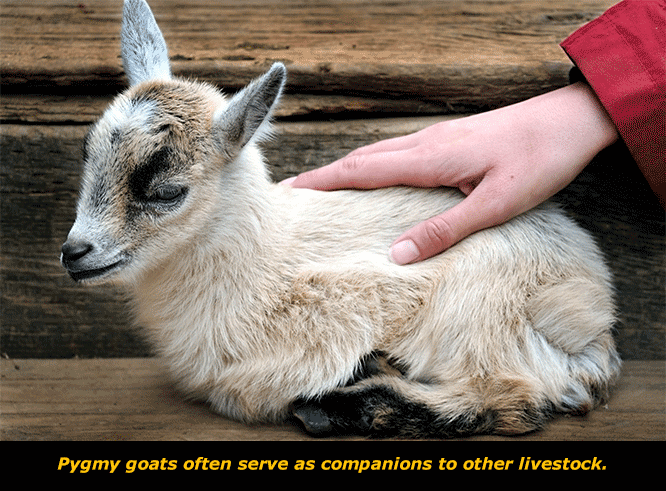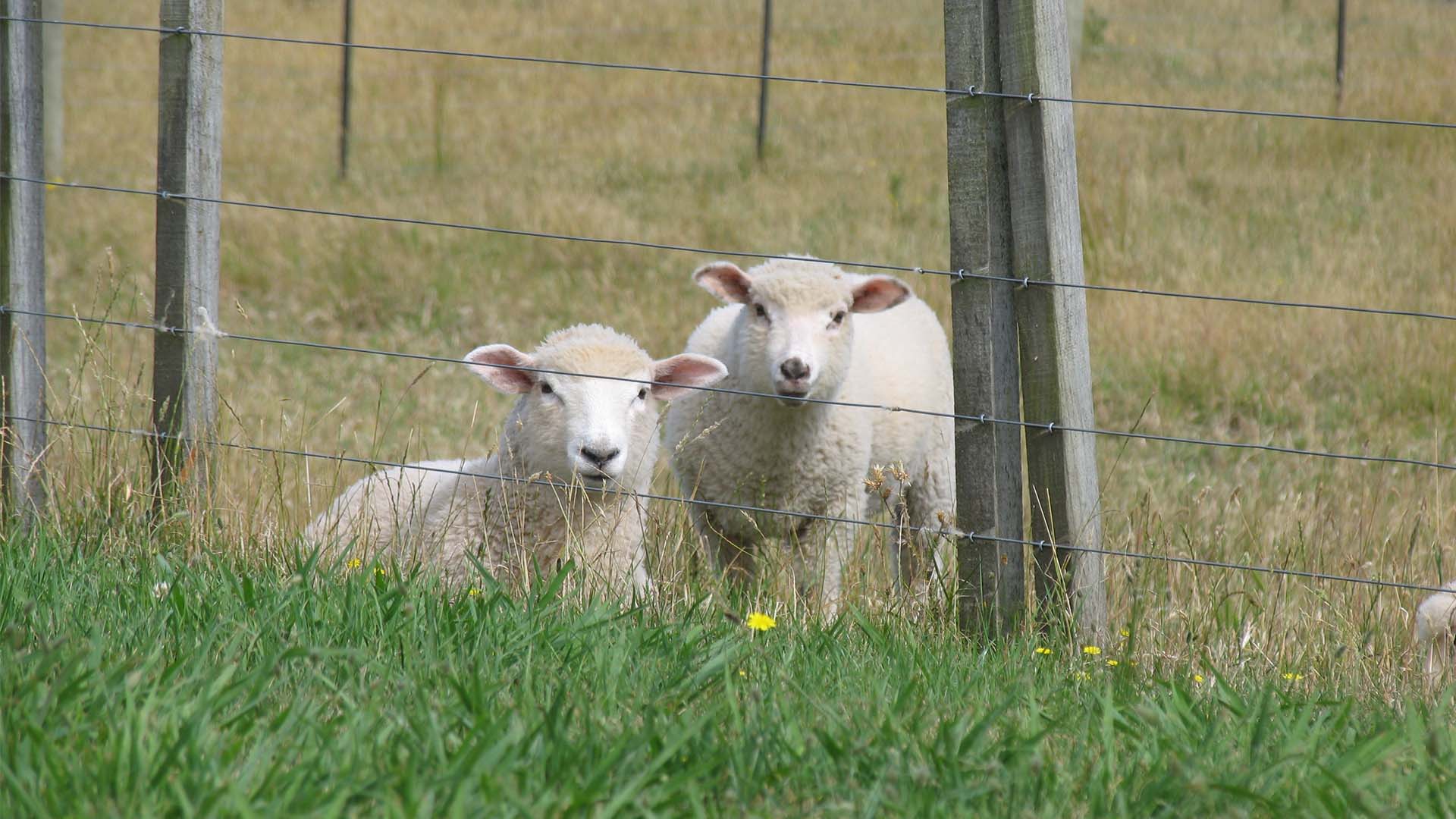
Pygmy goats are a favorite addition to hobby farms and livestock operations, thanks to their diminutive size, social nature, low-maintenance requirements and easy-going style. Ancestors of pygmy goats, originally found in Africa, came to Europe and developed into the pygmy goats we know today.
- Other Names:Miniature Goat, Nigerian Dwarf Goat
- Male Size Range: 60 lb to 86 lb; 19 to 24 inches
- Female Size Range: 53 lb to 75 lb; 18 to 22 inches
- Source: Europe by way of Africa
- Established in:1950s
- Ideal Habitat: Mildly humid savannah areas with tall grasses
- Fencing: Perimeter fence with closely-spaced wires
- Gestation Period:150 days
- Raised for: Show animals, vegetation control, pets, milk, meat, companion animals (for other animals)

All About Pygmy Goats
In some areas, the pygmy goat is the perfect livestock animal. It’s small and compact, meaning that it doesn’t burn through a lot of resources. It’s also agile, which helps it keep away from predators and find food. It can provide its owners with milk and, if needed, meat.
Those benefits are enough to make it a favorite breed in third-world countries, but in the developed world, they have even more to offer their owners. Most obviously, they’re simply fun animals to raise and show. They’re lively and active which makes them an enjoyable animal to have around. Pygmy goats are also highly adaptable and social, which makes them perfect companion animals for more skittish livestock. You can often see them at race tracks and farms where they’re paired with horses, sheep or llamas.
Pygmy goats are hardy and healthy, and there are only a few health concerns for the breed. Enterotoxemia, a disease common to all goats and sheep, can be curbed with vaccination. Lice can effect long-haired breeds. Worms may develop if they overgraze a pasture or eat or drink from contaminated areas – rotational grazing can lessen the chance of contracting it. Certain plants are also toxic to pygmy goats. These issues are minor though – you won’t be funding your vet’s vacation with the bills you rack up from caring for your pygmy goats!
With their limited health concerns and agreeable nature, pygmy goats are among the most rewarding animals to add to your hobby farm or livestock operation. They’re a perfect “starter animal” for youngsters and easy to care for – make sure they have 1 to 2 lb of hay a day and they’ll thrive. Allow them to wander a pasture and play, and you’re sure to get plenty of enjoyment out of these wonderful animals.
Learn More About Livestock
Zareba® has other articles about livestock that can help you in your farm planning, including additional spotlights on other interesting breeds. Check out some of these selections:
- Get to Know: The Belgian Blue
- Get to Know: the Scottish Highland
- Fencing for Free Range Poultry
- Electric Fence Height by Animal
Also be sure to subscribe to the Zareba® eNewsletter for more articles like this one and announcements about Zareba® products and fencing supplies.



